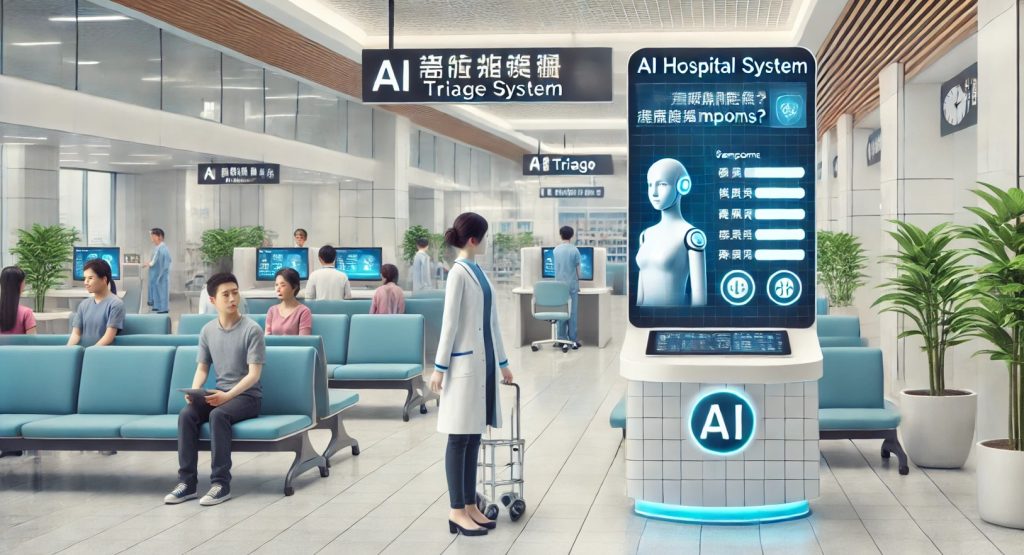

AI is rapidly transforming our lives, changing the way we work, learn, relax, and receive care. Across industries from healthcare to hospitality, entertainment to education, AI has become an essential force shaping the world as we know it. But as with any powerful tool, the speed and manner of its adoption vary greatly around the world. In the West, companies often aim for near perfection, carefully polishing AI systems before rolling them out. In China, however, the approach is different, favoring rapid implementation and real-world testing over painstaking refinement.
This pragmatic strategy is paying off. China’s vision to lead the world in AI is well underway, supported by an approach that emphasizes adaptability, utility, and learning from real-world experience. Here are three valuable lessons the West can take from China’s playbook when it comes to AI development.
Embrace Imperfection: “Good Enough” Can Still Be Great
In China, many companies are guided by a “good enough” philosophy when it comes to AI, deploying systems that are functional and effective, even if not flawless. While this carries risks, it also allows these companies to learn quickly from real-world feedback and make rapid adjustments.
A notable example is Haidilao, a well-known Chinese restaurant chain that introduced “Xiaomi,” an AI chatbot designed to handle customer reservations. Xiaomi isn’t particularly advanced its focus is on understanding basic reservation requests rather than nuanced conversation. But it manages over 50,000 daily customer interactions with about 90% accuracy, adding real value to the business. It may not be perfect, but it serves the purpose well.
This “good enough” mentality enables businesses to experiment, adjust, and improve, rather than waiting for perfection. In the West, companies often hesitate to launch AI products until they are meticulously fine-tuned, but China’s experience shows that AI doesn’t have to be perfect to be useful. Learning on the go can be a competitive advantage, giving companies the flexibility to adapt and respond to real-world needs faster.

Prioritize Practicality Over Prestige: Solving Everyday Problems Matters
Another distinction between the AI strategies in China and the West lies in the choice of applications. In the West, AI is often associated with cutting-edge breakthroughs in fields like surgery-assisting robots or advanced predictive analytics. While impressive, these high-tech solutions don’t always meet the immediate needs of the average consumer. In China, there’s a greater emphasis on using AI to address everyday challenges and deliver practical benefits.
A prime example of this practicality is the AI triage system introduced by Wuhan Union Hospital in April 2024. Patients access the service through a simple messaging app, where they describe their symptoms and medical history. The AI evaluates the urgency of each case, prioritizing appointments based on severity and resource availability. In its first month, this system enabled over 300 additional patient consultations in the hospital’s breast clinic, helping 70% of patients in urgent need of surgery get quicker care.
This approach underscores the importance of AI applications that meet real needs. Western companies might benefit from a similar focus by concentrating on how AI can address practical, everyday issues, businesses can create solutions that have a meaningful, immediate impact on people’s lives.
3. Learn from Mistakes: Adaptability Is Key
China’s rapid adoption of AI isn’t without its pitfalls. But instead of viewing these challenges as failures, companies often treat them as opportunities for improvement. Mistakes, setbacks, and even occasional project failures provide valuable feedback that drives better outcomes.
Take, for example, the story of Japan’s Henn na Hotel, which garnered worldwide attention as the first hotel staffed almost entirely by robots. The concept was futuristic, but in practice, it missed the mark. Guests reported frustrating experiences, with in-room assistant robots misunderstanding requests or, in one instance, mistaking a guest’s snoring for commands, causing unwanted interruptions throughout the night.
Chinese hotels, in contrast, have taken a more measured approach to AI. Many hotels now use simpler delivery robots that navigate hallways and elevators, bringing food and other amenities directly to guest rooms. These robots aren’t complicated, but they are effective, providing value without disrupting the guest experience.
Haidilao offers another example of this willingness to adapt. When the restaurant introduced robotic arms and automated delivery systems, they faced difficulties during busy hours, where robots struggled with the high demand and customers missed the personal touch of human interaction. Instead of abandoning the initiative, Haidilao opted for a hybrid model that combines human staff with AI, striking a balance that enhances service without overwhelming the technology.
This adaptability is essential in the fast-evolving world of AI. Rather than expecting immediate success, companies can embrace a more flexible approach, refining their strategies and technologies as they learn. In the West, where AI projects are often more rigidly structured, this flexibility could offer a new way forward.
The Path to Balanced AI: Moving Fast Without Compromising Quality
China’s approach to AI embracing imperfection, focusing on practical applications, and staying flexible demonstrates how to harness the technology’s potential without waiting for perfection. While technological sophistication is always a goal, it doesn’t have to come at the cost of innovation speed or real-world applicability. In a fast-moving landscape, a “ready, launch, refine” approach might be just what companies need to stay competitive.
For Western companies, this strategy suggests an exciting possibility: that AI can deliver significant value even in its early stages. Rather than spending years refining every detail, businesses can deploy, observe, and adjust, staying closely attuned to the needs of their customers and the realities of their industries. By taking a more balanced, pragmatic approach to AI, the West has an opportunity to unlock the benefits of this technology faster, delivering impactful solutions that meet people’s needs today.
In an industry defined by constant change, China’s strategy offers a compelling case for progress through practicality. It’s not about doing everything perfectly from the start; it’s about learning, adapting, and growing along the way. This mindset, grounded in real-world needs and feedback, may ultimately be what enables companies everywhere to reach new heights in AI innovation.






